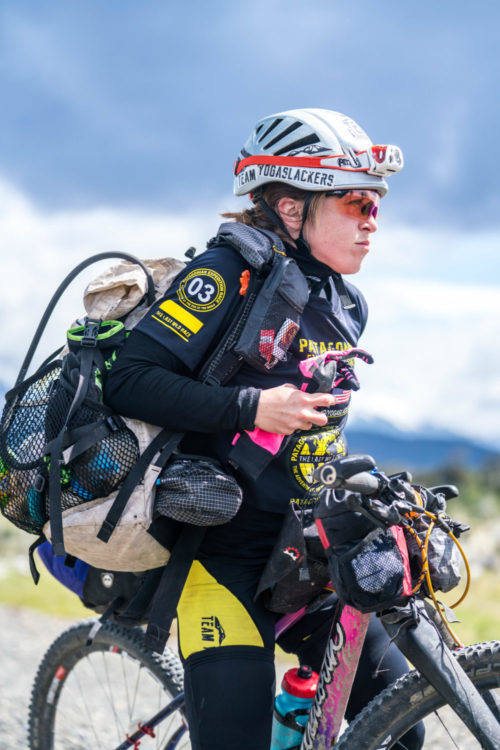
 Endurance athletes know a thing or two about overuse injuries. Expedition (adventure) races — often described as backcountry triathlons — typically include mountain biking, mountaineering and paddling across unmarked terrain. The non-stop races range from several hours to 10 days long, and four-person teams must navigate difficult terrain with only a map and compass.
Endurance athletes know a thing or two about overuse injuries. Expedition (adventure) races — often described as backcountry triathlons — typically include mountain biking, mountaineering and paddling across unmarked terrain. The non-stop races range from several hours to 10 days long, and four-person teams must navigate difficult terrain with only a map and compass.
Bend resident Chelsey Magness is one of the world’s top adventure racers. In 2018, Magness and her husband, Jason — along with two other team members — won the Patagonian Expedition Race in Chile. The 600-kilometer race took Team Bend Racing/YogaSlackers roughly six days to compete.
Since completing her first adventure race 13 years ago, she has had her share of overuse injuries. These repetitive stress injuries — plantar fasciitis and knee pain, among others — require consistent rehab, according to 36 year-old Magness.
“Early on in adventure racing, I learned that you need to strengthen muscles and not just stretch them,” said Magness, who also teaches acrobatics and acroyoga.
Magness and her husband, along with other endurance athletes, regularly see physical therapist Pablo Gomez (Rebound @ BOSS Sports Performance) to keep their bodies race-ready. “I love that Pablo looks at the whole body and how it’s connected,” said Magness. During her sessions, Gomez gives Magness targeted exercises such as single leg deadlifts for strength and balance.
She has applied what she has learned in physical therapy to her racing — and said she regularly stops mid-race to do PT exercises like glute bridges and hip motion exercises to “reprogram my movement” after hours (and days) of muscle fatigue when “the body starts to shut down.”
“We know the importance of physical therapy firsthand,” said Magness. “It affects our performance tremendously.”
The grueling nature of adventure races requires consistency in training as well as rehab. To maximize performance, “we are very focused in our training,” said Magness, whose workout regimen includes a mix of high-intensity interval (HIIT), strength and endurance training.
While the COVID-19 pandemic halted international adventure racing in 2020, Magness said Team Bend Racing is looking forward to competing again in 2021. The race schedule includes the 300-mile Expedition Oregon in May — hosted by Bend Racing in Central Oregon — and the roughly 200-mile Expedition Canada (British Columbia) in June.
Magness’ drive to compete in such a demanding sport year after year is personal. “When we’re out racing we see the best and worst sides of ourselves — you’re often sleep deprived and hurting physically while trying to navigate your next checkpoint (in the race),” she explained.
“We work through challenges together using communication, acceptance and adaptability.”
The skills honed in adventure racing transfer directly to everyday life, said Magness, who is a mother to two young boys. She sees a parallel between approaching life’s difficulties one obstacle — or checkpoint — at a time.
“That’s what adventure racing is,” said Magness. “You hit each problem as it comes.”
